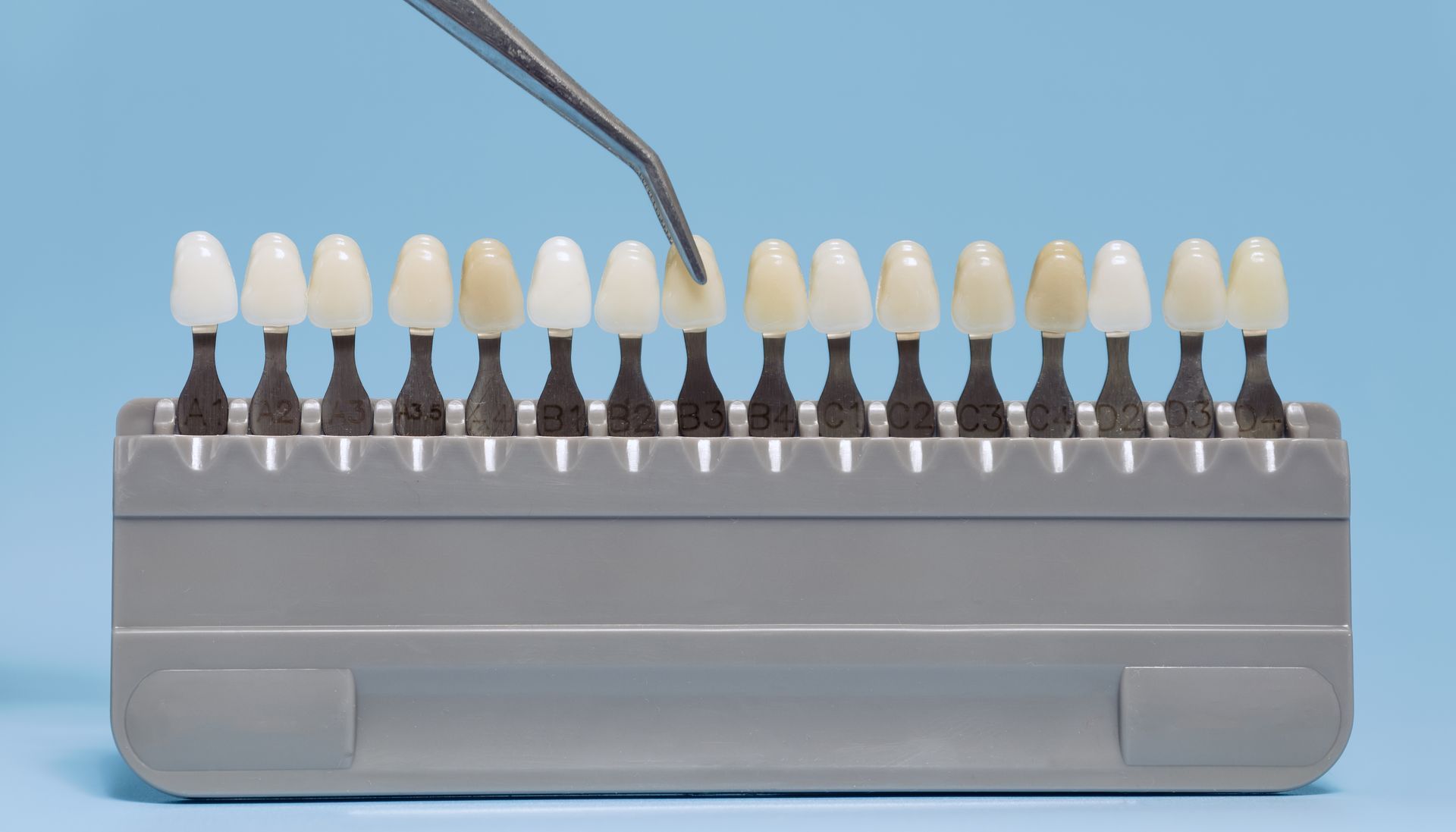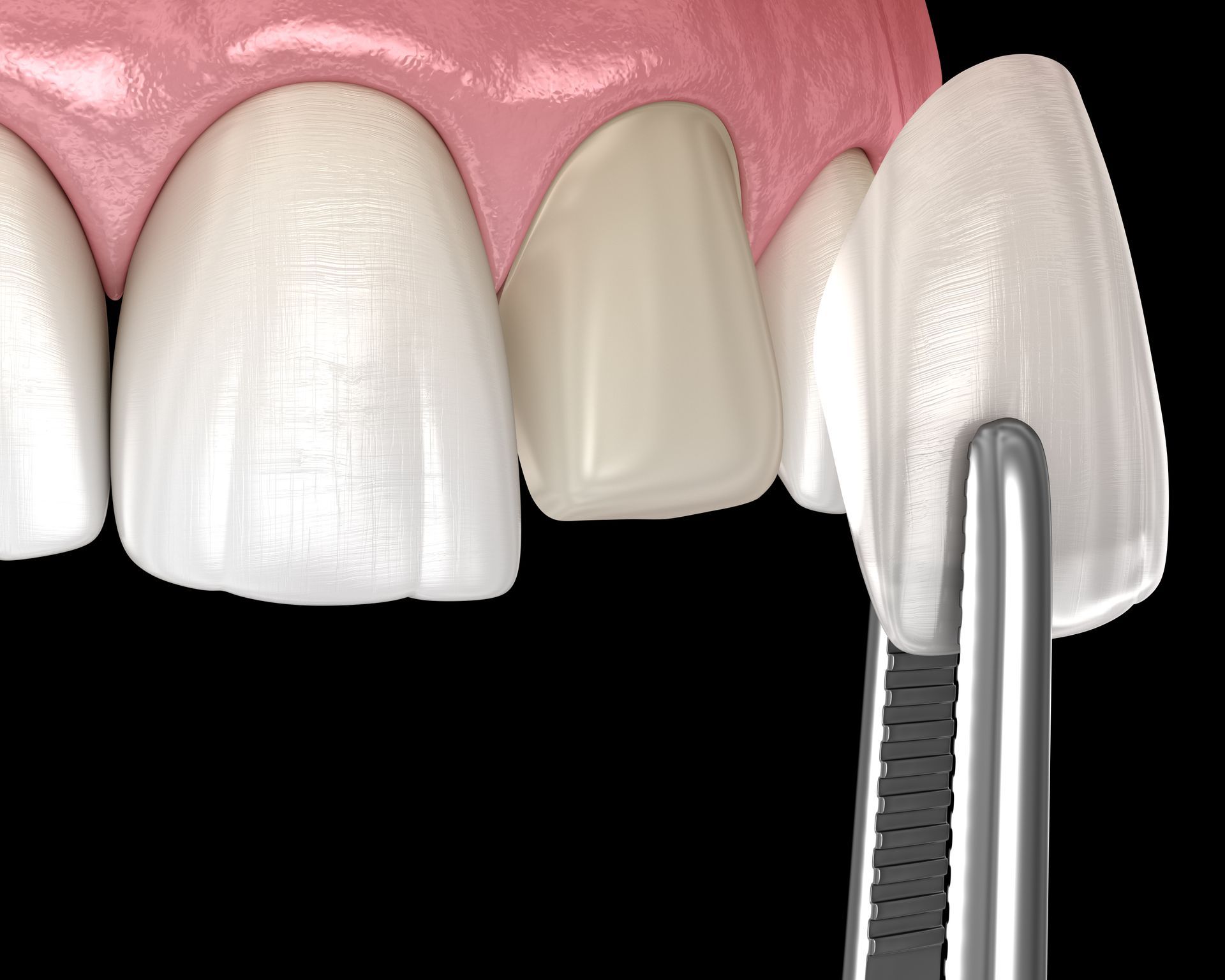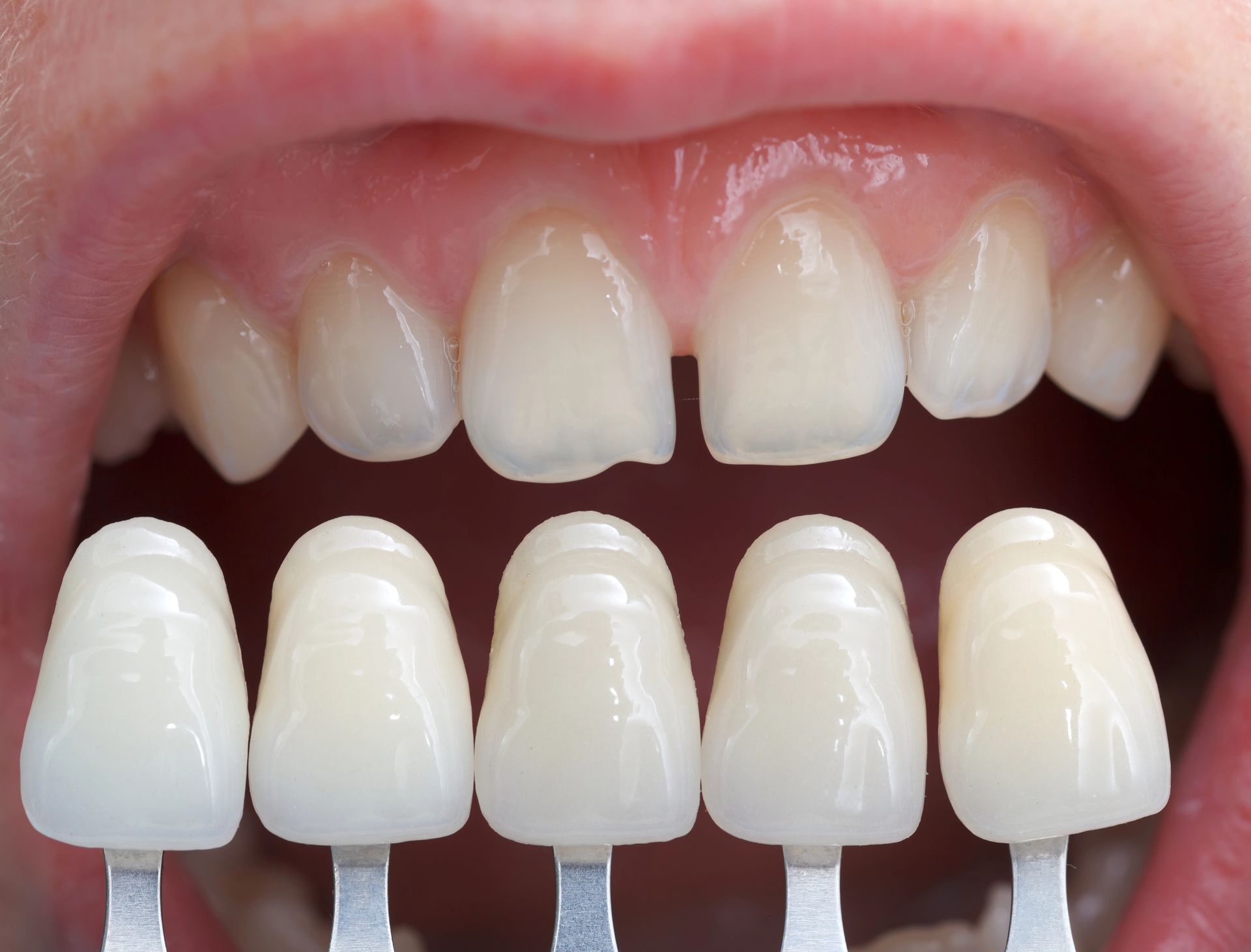By Isaiah Davis
•
April 15, 2025
Are you trying to decide between composite vs porcelain veneers for your smile? Both options offer unique benefits and can enhance your appearance, but the right choice depends on factors like durability, cost, and aesthetic preferences. Composite vs Porcelain Veneers Understanding the materials used in dental veneers is crucial when considering composite vs porcelain veneers for enhancing your smile. Composite veneers are crafted from a resin material that is applied directly to the teeth, allowing for a more flexible and less invasive approach. On the other hand, porcelain veneers are made from a ceramic material that is custom-fitted and bonded to the teeth, offering a more durable and natural-looking finish. When evaluating composite vs porcelain veneers, it's important to consider the aesthetic and functional differences between these materials. While composite veneers can be more cost-effective and quicker to apply, porcelain veneers are often praised for their longevity and resistance to staining. For those interested in exploring how veneers can address specific dental concerns, such as misalignment, you might find valuable insights in our article on Dental Veneers for Crooked Teeth: Can They Straighten Your Smile? Aesthetic Differences When considering composite vs porcelain veneers, one of the primary factors to evaluate is their aesthetic appeal. Composite veneers are known for their ability to be shaped and polished directly on the teeth, allowing for a more immediate transformation. However, they may not always match the natural translucency and luster of real teeth as effectively as porcelain veneers. Porcelain veneers, on the other hand, are crafted in a lab and can be customized to mimic the natural appearance of tooth enamel, often resulting in a more lifelike and radiant smile. The choice between composite vs porcelain veneers can significantly impact the overall look of your smile. While both options aim to enhance dental aesthetics, porcelain veneers are often praised for their superior ability to resist stains and maintain their color over time. This makes them a popular choice for those seeking a long-lasting solution. For more information on how these options can enhance your smile, visit our page on Veneers in Columbia . Durability and Longevity When considering composite vs porcelain veneers, understanding their durability and longevity is crucial. Composite veneers are known for their affordability and ease of application, but they generally have a shorter lifespan compared to porcelain veneers. Porcelain veneers, on the other hand, are renowned for their strength and resistance to staining, often lasting significantly longer. The choice between composite vs porcelain veneers can impact how long your smile maintains its aesthetic appeal, with each option offering distinct advantages in terms of wear and tear over time. Cost Comparison When considering composite vs porcelain veneers, cost is a significant factor for many individuals. Composite veneers are generally more affordable, making them an attractive option for those on a budget. On the other hand, porcelain veneers tend to be more expensive due to their durability and natural appearance. The choice between composite and porcelain veneers often depends on personal preferences and financial considerations. For more information on dental options, visit Design Dentistry Columbia, your trusted Columbia Dentist . Application Process When considering composite vs porcelain veneers, understanding the application process is essential. Composite veneers are typically applied directly to the teeth in a single visit, where the dentist sculpts the material to achieve the desired shape and appearance. In contrast, porcelain veneers require a more involved process, often taking two or more visits. Initially, a mold of the teeth is taken, and temporary veneers may be placed while the custom porcelain veneers are crafted in a dental lab. Once ready, these are bonded to the teeth, offering a durable and aesthetically pleasing result. Maintenance Requirements When considering composite vs porcelain veneers, understanding the maintenance requirements is crucial for long-term satisfaction with your smile. Composite veneers generally require more frequent maintenance due to their susceptibility to staining and chipping, whereas porcelain veneers are known for their durability and resistance to discoloration. Regular dental check-ups are essential for both types to ensure they remain in optimal condition, but the frequency and type of care may vary depending on whether you choose composite or porcelain veneers. Suitability for Different Dental Issues When considering composite vs porcelain veneers, it's important to understand their suitability for various dental issues. Composite veneers are often chosen for minor cosmetic adjustments, such as small chips or gaps, due to their ability to be easily shaped and applied. On the other hand, porcelain veneers are typically preferred for more significant transformations, as they offer a durable and natural-looking solution for issues like severe discoloration or misalignment. Each type of veneer has its own strengths, making them suitable for different dental needs and aesthetic goals. Time Investment When considering composite vs porcelain veneers, understanding the time investment involved is crucial. Composite veneers typically require less time to apply, often completed in a single visit, making them a quicker option for those with busy schedules. On the other hand, porcelain veneers usually demand a more extended process, often involving multiple appointments to ensure a precise fit and natural appearance. This difference in time commitment can be a significant factor when deciding between composite vs porcelain veneers for enhancing your smile. Potential for Staining When considering composite vs porcelain veneers, one important factor to evaluate is their potential for staining. Composite veneers, made from a resin material, are more susceptible to discoloration over time due to their porous nature. This can lead to a gradual change in appearance, especially if exposed to substances like coffee, tea, or tobacco. On the other hand, porcelain veneers are known for their resistance to stains, maintaining their color and brightness for a longer period. This difference in staining potential is a key consideration when choosing between composite vs porcelain veneers for enhancing your smile. Conclusion Deciding between composite vs porcelain veneers can be challenging, but understanding your options is the first step. For more information, call us at (803) 291-5782 or read our reviews on Google Maps .











